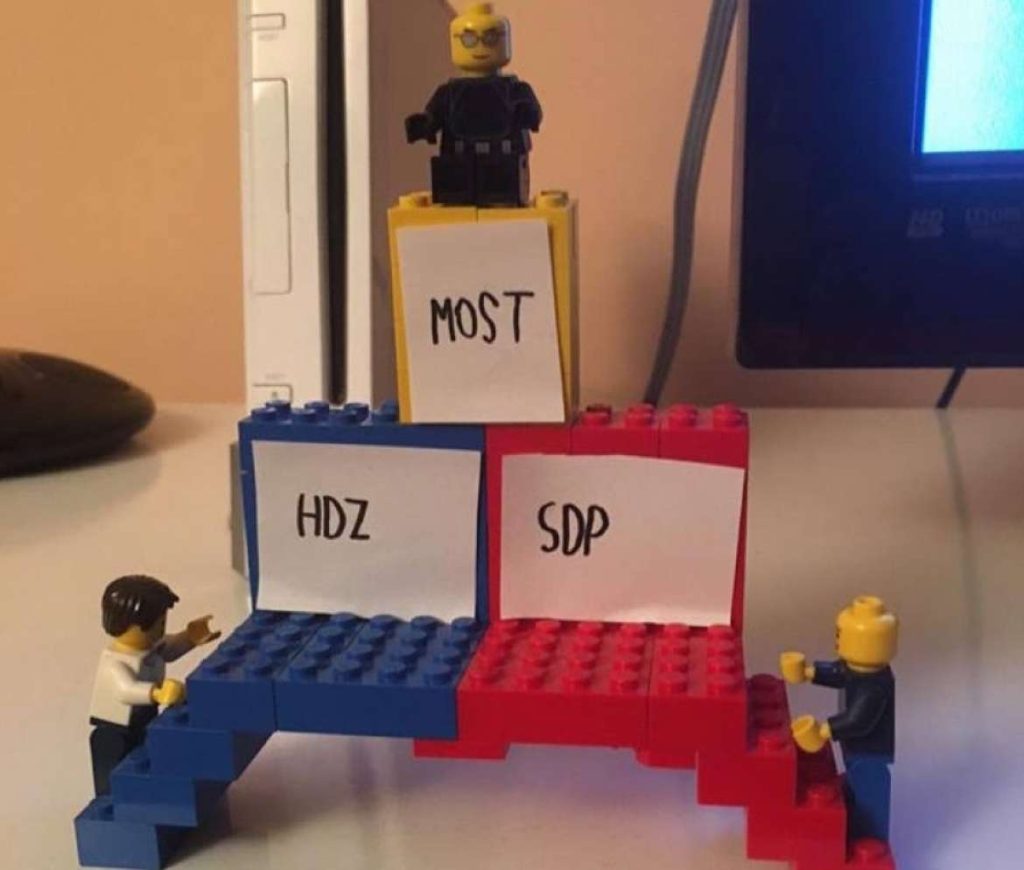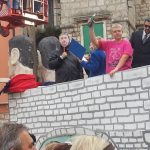I love Dalmatia. It really is Paradise on Earth, and I genuinely believe that living there for 13 years has made me a better person.
It has certainly made me a more patient one…
Having lived there for so long, and coming with my Western mentality, it has also frustrated me more than any other place I have ever lived. It took me years and years to finally realise that there was a reason certain things, which were so obvious to this more ‘advanced’ Westerner, did not exist in Dalmatia for a reason – locals didn’t want or need them.
I lost count of the number of foreigners who came to Dalmatia to do business, and then left frustrated. Why were things so hard there? Why can’t the locals see what was so obvious, they complained?
After many years, I realised that there was one truth about Dalmatia, and that if you can accept it from the start, Dalmatia is truly Paradise. And if you can’t accept it immediately, then years of frustration as a businessman await until you come to accept it.
As I explained in this short piece for the British Embassy, that one truth can be explained in a single sentence.
“Do not try and change Dalmatia, but expect Dalmatia to change you.”
And if you can accept and live by that maxim, Dalmatia really is one of the best places in the world to live part of your life, particularly if you are bringing up small children.
And for those who complained about the frustrations of life, the locals had – still have – a simple answer. If you don’t like it, go back to where you came from. This is the way we are, and we are not going to change and adopt your values to please you. We are the way we are, and we like it that way.
It is a strong argument and a hard one to counter, and there are plenty of other places to live if you don’t like the Dalmatian way, although few which are so beautiful. Dalmatians, Croatians have a history of having to fight for their identity. Their freedom has been hard-fought and they are understandably prickly at the suggestion that they should compromise on their values. I respect that totally.
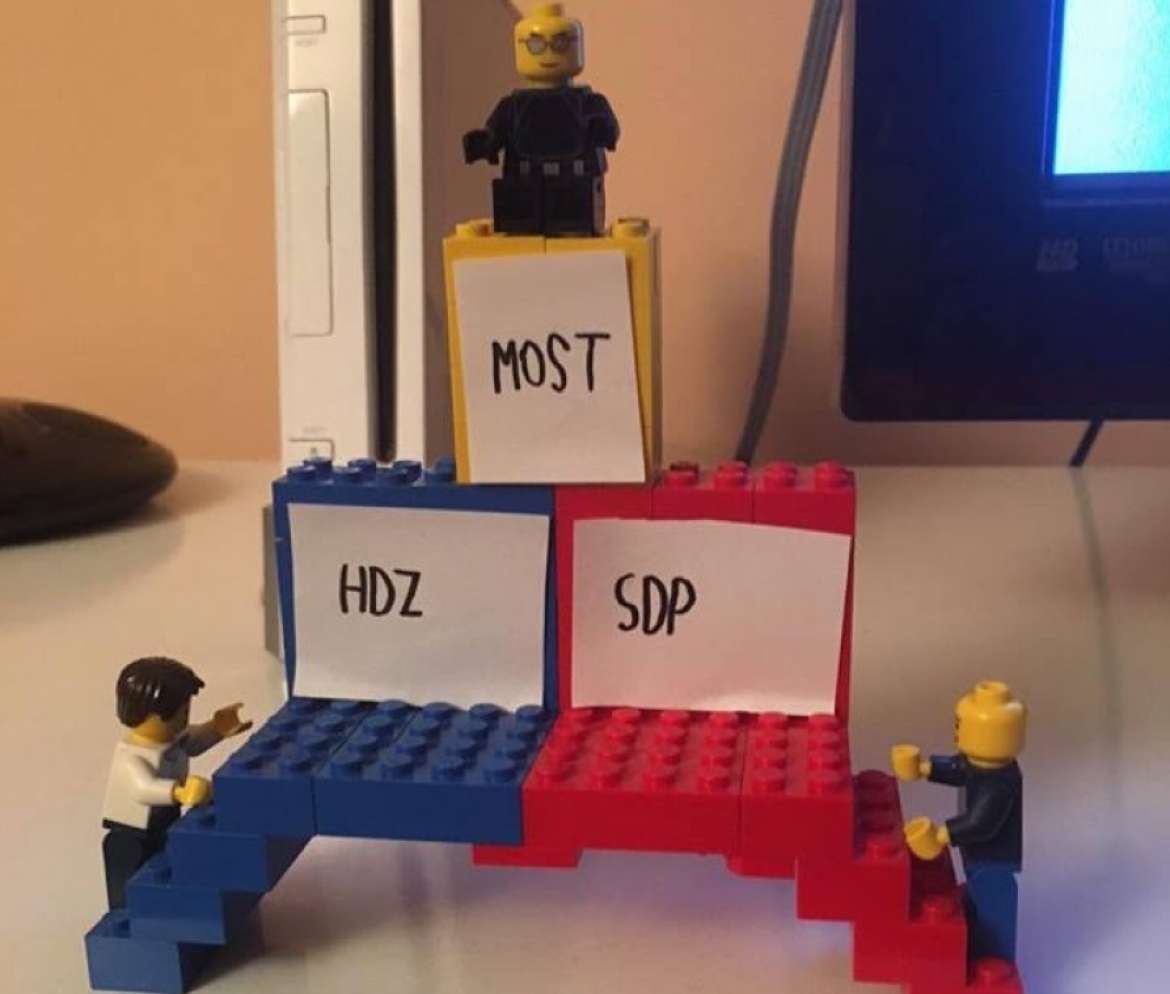
And yet…
Although I am still – and always will be – a foreigner in Croatia, I do have a bigger vested interest in the country in the form of my lovely Dalmatian wife and adorable kids. And while I respect and admire the fact that traditions and heritage have been so well preserved here over the centuries, I am beginning to wonder more and more about the healthiness of the young Croatian mindset behind this admirable protection of cultural values.
Children are not born with prejudice or hatred. Nor with a default negative mindset which sadly is the standard in the modern Croatia. But it does not take long for young and innocent kids to have their young Croatian mindset shaped for the future by events of the past.
Regular readers of TCN will know that I was a little shocked by my youngest daughter when I collected her from kindergarten as a 5-year-old. She told me that her friend Ivan was SDP and Iva was HDZ. She had no idea what either meant, but the political shaping of Croatian youth had begun. In kindergarten.
As a non-political family, I was even more shocked that my eldest aged just nine could name and recognise all the Croatian presidents, 5 prime ministers, as well as the mayors of Split, Zagreb and Jelsa. Extraordinary when you consider that the average British adult can name and recognise and know the job title of perhaps 6 politicians. And if we had lived in a political household, who knows how much of a political authority she would be.
But the politics is only part of the story.
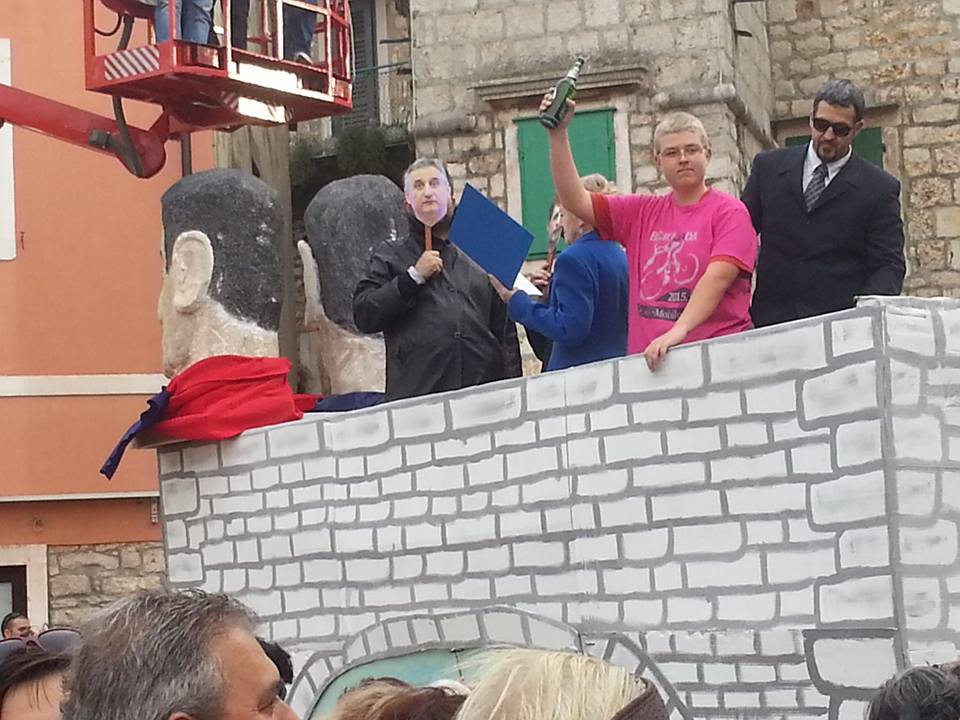
Carnival season is one of the most joyous in Croatia, a wonderfully festive occasion when locals come out to party after a long winter, as this very Catholic country prepares for Lent.
As a foreigner without much of the local language, I always took the carnival at face value, a time of community spirit and family fun. It was only a little later as I got more immersed in the way of life and spoke better Croatian that I realised just how brutal the carnival could be. And in terms of ‘acceptance’ in a foreign community, there is perhaps no better ‘endorsement’ than finding yourself with your own carnival doppelganger.
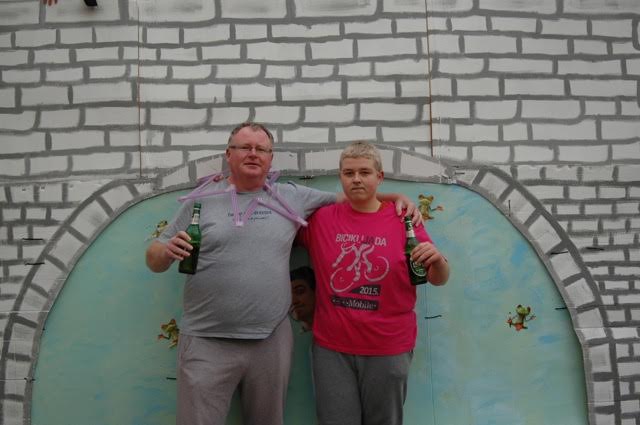
And I have to congratulate young Mili on an exceptional job well done, right down to the pink t-shirt and stylish swigging from the Lasko bottle. The only thing missing was the star around his neck that I was forced to wear.
The political sketches tended to be brutal, focused on politicians, and invariably there was the burning of one of them in an effigy as the highlight of the event. Local mayors had the chance to find out what the voters REALLY thought during some very clever and exceptionally poignant sketches. The politicians may have come out a little bruised from the experience, but it was largely good clean fun and the mayors took it in good spirit.
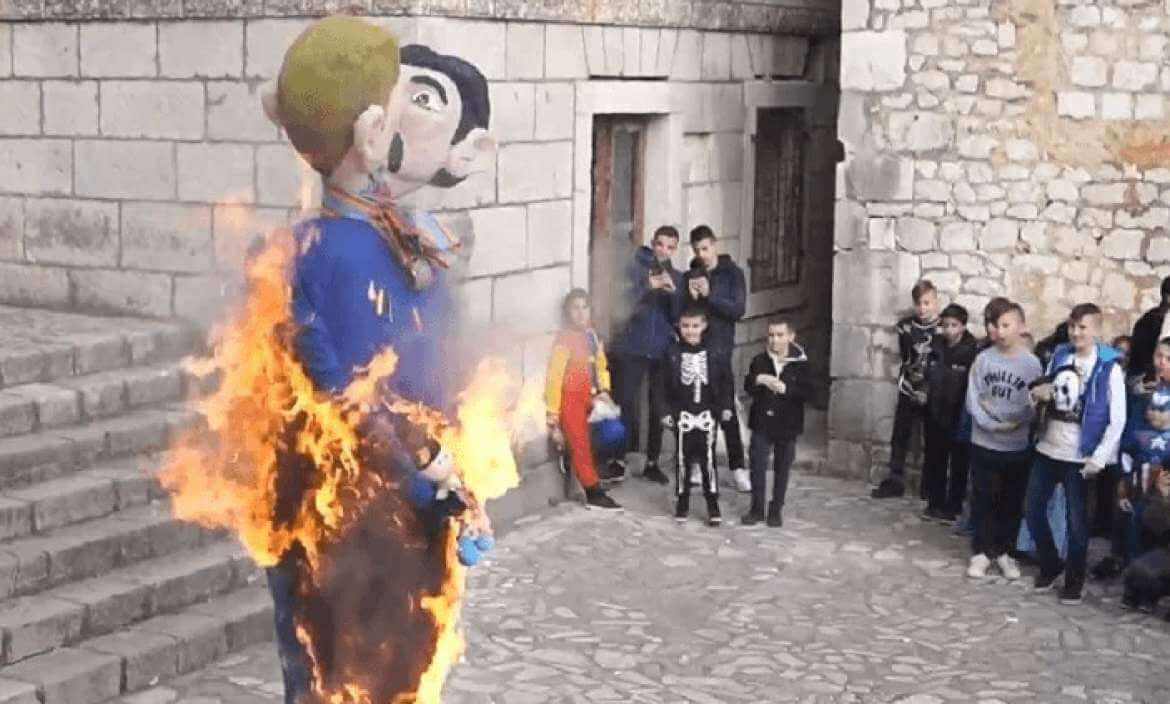
But in recent years, at least as it appears to me, there has been a subtle shift in perception in the carnival, and the focus has been less on the traditional politicians and more on individuals and issues. The one that went truly global this year, of course, was the burning of the gay couple holding a child doll of an MP with a Communist star on his forehead. While the display was roundly condemned internationally (and check out the comments on our reporting to feel how potential tourists felt), the focus of this article is on the young Croatian mindset. There were plenty of cheering kids at the burning of the gay couple, an image which will stay with them undoubtedly, and one more influence on the mindset.
One national portal shared the above video of 1935 Germany and the carnival featuring the Jews as the fall guys. Different times, and completely different scenarios, but for the young mindset? Perhaps a little less far removed.
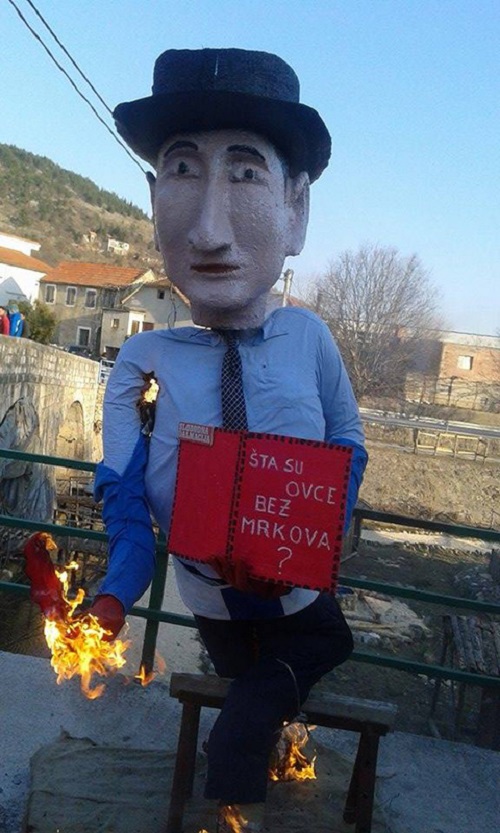
A few years ago, just a few kilometres from Imotski, it was the turn of Dalmatian journalist Ante Tomic.
The Croatian Government released a press release in the wake of the Imotski effigy:
“The tradition of burning the carnival effigy usually consisted of a sort of humorous and mocking criticism of various events in Croatian society. That sort of carnival spirit can remain within the boundaries of satire when it ‘judges’ someone in power like the president, the prime minister, a mayor or some other politician, but by no means those who represent various minorities in Croatian society. That is not traditional, nor entertaining nor in the spirit of Croatian and European values. As such, we condemn that act.”
A condemnation which is welcome, but it does little to impact that young Croatian mindset.
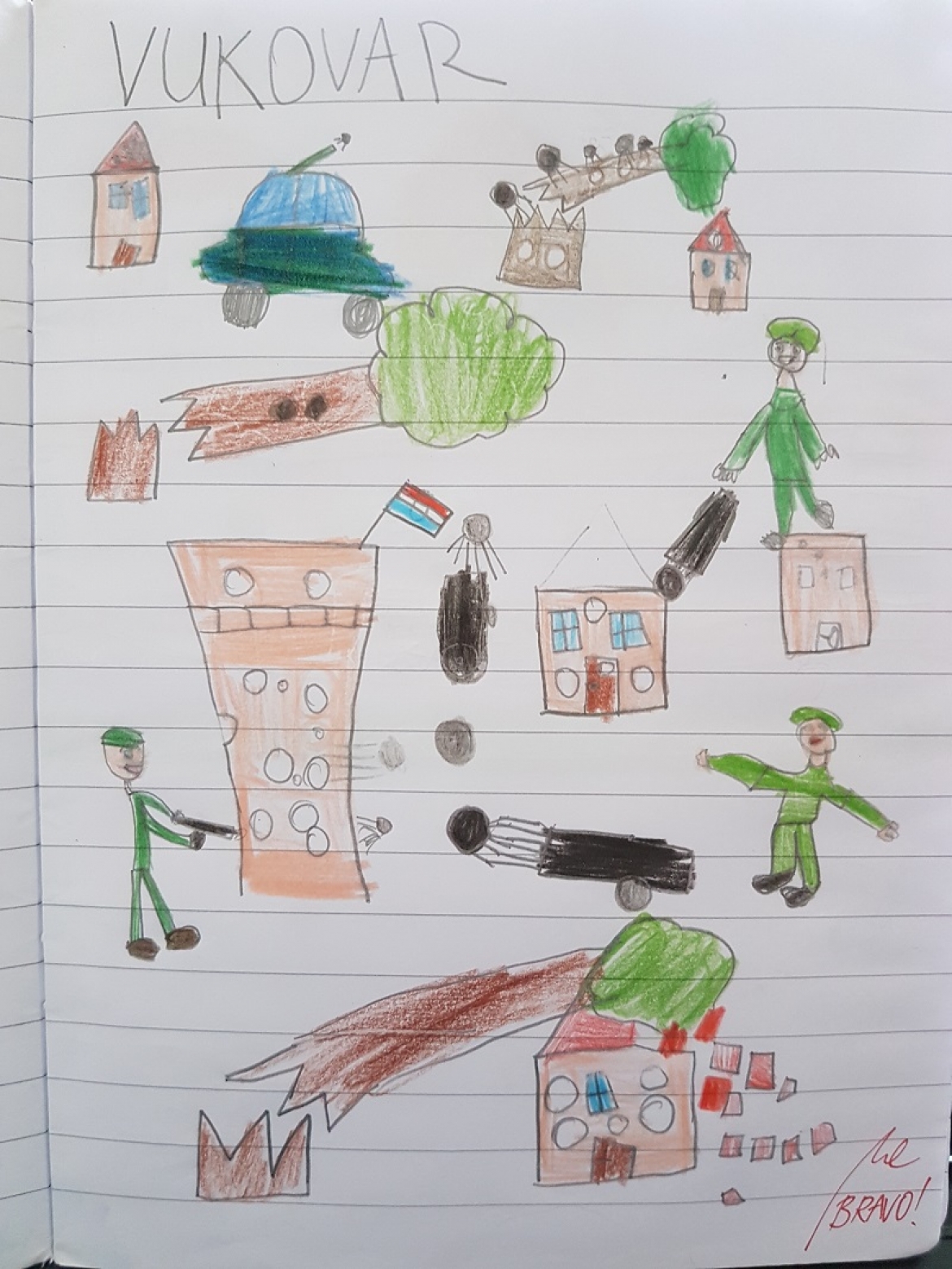
And so to one of the most sensitive topics in the Croatian psyche – Vukovar. The heroic sacrifice of the people of Vukovar is rightly remembered on a national level on November 18 each year, the anniversary of the fall of the city after its brutal siege in 1991, and it is incredibly important not only to honour and remember those who sacrificed so much so that an independent Croatia could exist, but also to teach the next generation about this vitally important part of Croatian history.
But when the time is right, and when young Croatian minds are sufficiently mature to handle the distressing details. Not at the tender age of 7.
As such, it is almost taboo to question anything about the official approach to Vukovar, something which I did not do for years until my eldest daughter came into our bedroom early one morning, aged 7, shaking and crying. I took her into the bed, kept her warm, and frantically tried to figure out what could have gotten her into such a state on the idyllic island of Hvar, in a loving family environment.
It turned out that she had had her first nightmare due to the homework she had had to do. For Vukovar Day. Aged just 7, here is the homework she presented, above (and note the ‘Bravo!’ from the teacher in the bottom corner).
“Some of my friends drew dead bodies, Daddy, but my teacher said we shouldn’t do that.”
7 years old. Another piece in the shaping of the young Croatian mindset. I was so angry at the time that I wrote Is It Really Necessary to Poison the Minds of the Next Generation? I was expecting a torrent of abuse from my faithful trolls, but not a single comment.
I am no longer religious – 9 years in a Jesuit boarding school with priests convicted for child abuse can do that to a chap – but I respect the right to religious expression, and there is no denying that the influence of the Catholic church – both benign and malign – has helped define the Croatian nation and its identity over the centuries.
In terms of shaping the young Croatian mindset, the Catholic church inserts its influence at an early age. Religious instruction, called Vjeronauk, is a major part of the curriculum from day one. I say Religious instruction, but it should be called Catholic instruction, for the focus is on all things Catholic in those important early formative mindset years. I decided not to enroll my kids in Vjeronauk, not because I am anti-religion, but because I wanted them to make their own minds up about things, having learned about all religions. Vjeronauk in those formative years focuses on one religion only – Catholicism.
Conservative traditional approaches, and they have all served to shape the Dalmatian mentality, which in turn contributes to the wonderful Dalmatian way of life that we all adore. But – at least in the humble opinion of this fat Irishman – there is a disservice being done to the youth of today with such an approach. This closed mindset is one of the factors, at least in my opinion, for the mass emigration from Croatia in recent years. I have lost count of the number of young Croats abroad who place very highly on their list of benefits of emigration as ‘finally being able to breathe.’
Dalmatia I love you. You are like malaria. Once you get under the skin, you infect people for life with your beauty and lifestyle. But do take a closer look at ways to preserve your wonderful traditions while equipping your children with the tools to survive in the modern world. The world has moved on and, unless the approach to shaping the young mindset changes, so will your children too.

